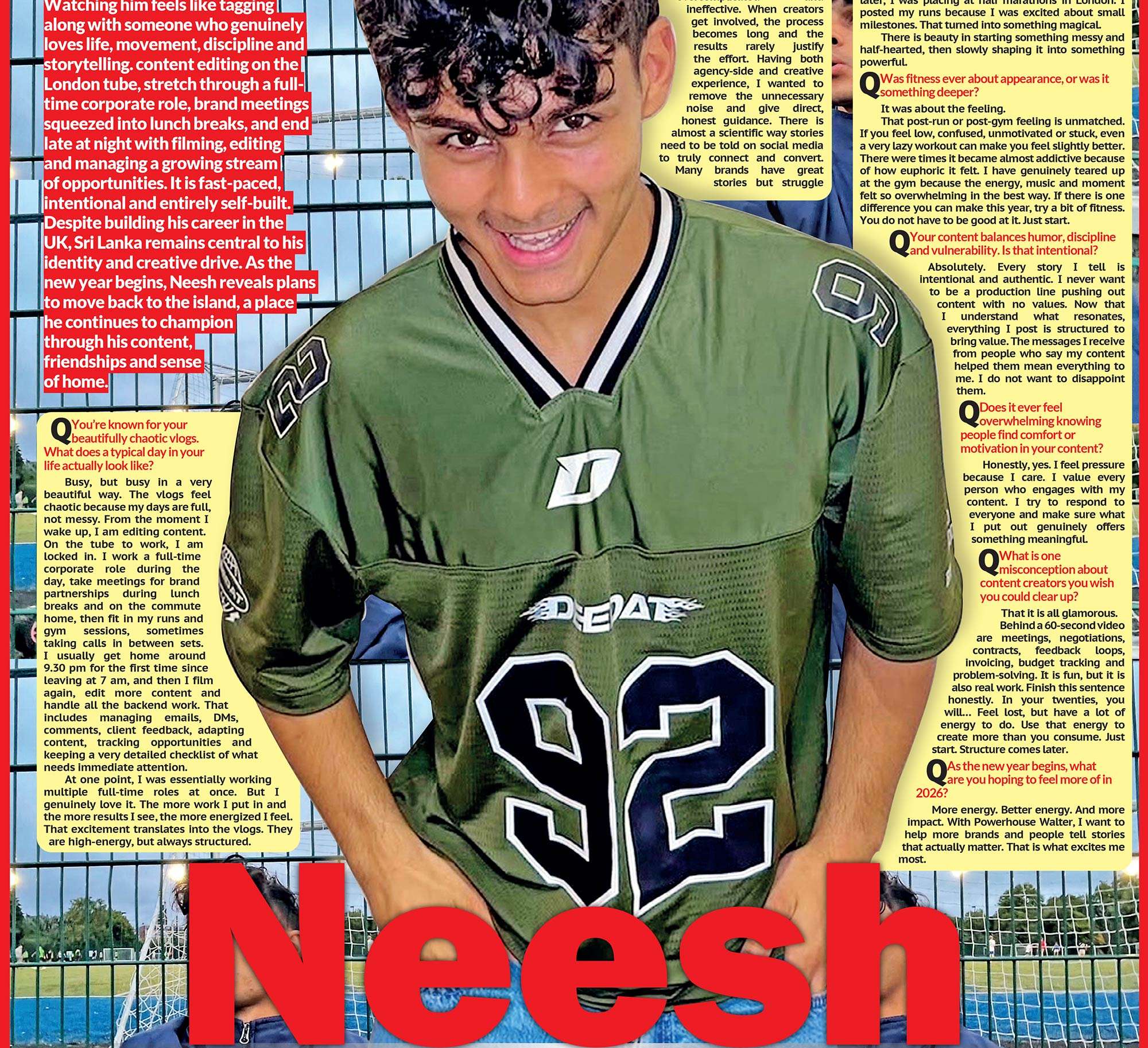
1
Ragging in state universities of Sri Lanka has become a trending and highly sensitive topic these days. As someone who has experienced it firsthand, I felt compelled to share my personal journey with ragging during my time at a state university in Sri Lanka. To be honest, it was not a pleasant experience. After completing my A/Ls, I began to dream about higher education. A few months later, I received the long-awaited good news. My results were good enough, and my Z-score qualified me for entry into a state university. It was unexpected, but I was overjoyed. I had always known the academic standards of state universities in Sri Lanka were high, and this felt like a major milestone.
2
By then, I had already started working and was pursuing a few external diplomas on the side. Like most students, as soon as I received my university entrance letter, I started researching the university culture, particularly about “RAGGING.” As someone who strongly believes in individual freedom and self-respect, the information I came across was deeply unsettling. To make matters more challenging, the university I was selected for was far from home, and I had never been away from my family for long. It was my parents who stood firm on sending me for higher education because they believed in my potential more than I did. And so, the journey began. I resigned from my job, shed many tears, and went through sleepless, stressful nights trying to mentally prepare myself for this new challenge.
I still remember the registration day at the university. The university was buzzing with thousands of students and their parents, full of hope and excitement. But among them were second-year seniors roaming around, attempting to ‘welcome’ the newcomers. Two seniors approached me after my registration, pretending to be friendly and helpful, claiming they would protect us from any harm and support us academically and personally. At the time, I felt something wasn’t right. They seemed to already know things about my background, and I suspected they had access to our personal information even before we stepped onto university. They insisted we join the so-called “The Batch” in reality, the ragging group known as “WAATHA” and not the anti-ragging group called “ALA.” The first week passed without any major incidents. The seniors continued to be polite and helpful. Later, I learned this was something called “Mal Sathiya,” a “honeymoon week” before the actual ragging began.
3
Then came the real horror.
We were prohibited from speaking in English, not even a single word. If we saw a senior, we were expected to bow down and greet them as though they were our masters and we were their slaves. In my view, this was the first step in destroying our self-respect. Gradually, the seniors’ tone became aggressive, vulgar, and unethical. I had never heard such foul language before in my life, and I was deeply disturbed. The university canteen became their daytime ragging hub. They had their own spies stationed to watch for marshals (the university’s security staff). We were given random stories, poems, and unrelated texts to memorize and repeat on command. If one person failed, the other batch members were punished.
This was their twisted way of promoting “unity” within the batch. I still don’t understand how that created unity. Maybe they believed that shared fear and suffering could bond people. But to me, it seemed like an unethical and outdated method of control.
The first month was nothing short of miserable. I remember hiding under trees, praying no seniors would spot me. After lectures, I would run to catch the bus like I was escaping from a crime scene. Thankfully, I was staying in a relative’s house outside campus and didn’t have to endure the notorious hostel ragging at night. From what I heard, it was even worse. I still remember being yelled at by one of my own batchmates for not staying in the hostel. He probably got scolded by seniors for my absence.
This entire culture felt like modern-day slavery. We weren’t allowed to wear what we wanted, speak freely, or move around the university as we pleased. We were expected to obey every ridiculous instruction and endure verbal abuse in silence. Eventually, the pressure took its toll. I started avoiding university, skipping days, and escaping immediately after lectures. I began commuting daily from Colombo to the university, four hours each way just to avoid ragging. It was exhausting.
4
Then came the turning point.
One of the wisest decisions I made in my life was choosing to become an “Anti-Ragger.” For many, this may seem like a simple label, but for me, it was a decision that changed my entire university experience. In the early days of university life, I spent most of my time hiding, escaping from those who tried to force me into something I didn’t believe in. But in the second month of university, I finally broke free from that mental cage. I chose to reclaim my voice and my freedom.
Becoming an Anti-Ragger wasn’t easy. Many from the so-called “WAATHA” batch tried to keep us under their control, warning us about the supposed disadvantages we would face if we became “ALA” (Anti-Raggers). These are some of the threats and restrictions we were told to expect:
- We would not be allowed to use the university premises freely. Only places like the administrative buildings, lecture halls, and library were considered “safe” for us. Common areas like canteens were practically off-limits. If we accidentally stepped into a “ragger-dominated” zone, we risked being attacked. I still remember a time toward the end of our first year when a few of us entered a common area and were assaulted by a group of raggers. Several students were injured and hospitalized. A police complaint was later filed, and investigations followed.
- We would be excluded from the final batch photograph.
- We would not receive any academic or extracurricular support from seniors.
- We would be denied membership in most university societies (though thankfully, a few societies still welcomed us).
- We would be openly insulted and humiliated by raggers.
- A false narrative was spread that even lecturers would not support us, which turned out to be a complete lie. Throughout my four years, I never once felt that lecturers treated us differently based on our stance against ragging.
5
Let me be very clear: none of these so-called “rules” were enforced by the university administration. They were created entirely by the raggers.
Despite all these challenges, none of it was enough to shake our determination or focus. In fact, the anti-ragging community grew stronger, more united, and more supportive than the ragging groups ever were. Anti-ragging seniors were always there for us. Sharing notes, guiding us in academics, helping with non-academic work, and most importantly, standing by us when we were attacked. Even though we were not allowed in the raggers' batch photo, anti-raggers had the chance to get their own batch photo. Our minds were at ease because no one was watching over our every move or trying to command us like we were in a prison.
And today, I’m proud to say that many from the anti-ragging community are now well-established in their careers and personal lives. They are thriving.
As a student, I have always respected and admired the history of those who fought for free education in Sri Lanka. I honor the struggles and sacrifices of the true student heroes, those who stood up for facilities, for rights, and for the betterment of all. But I ask, why does that legacy have to be tarnished by ragging?
- Why is a student not allowed to simply be themselves?
- Why must students endure physical and mental harassment?
- Why can’t batch unity be built through ethical and respectful means?
- Why is freedom being limited in a place meant to nurture growth?
- Why are some trying to control others like prison wardens?
- And most importantly, why is someone’s dignity and self-respect being trampled on?
6
In my personal view, if ragging were ever to be conducted in a humane, ethical, and respectful manner, where fun doesn’t come at the cost of another’s pain, then Sri Lankan universities could become dream destinations for every student. Unfortunately, due to the fear and trauma associated with ragging, many capable and talented students choose not to pursue their university education. If one whole batch can stand together against the ragging and not take revenge by repeating it with their juniors, I strongly believe that we can put a full stop to the unethical ragging culture.
Although I didn’t face the most brutal forms of ragging, mainly because I avoided those situations and eventually took a stand, what I did face was more than enough to make me question the entire system. And what saddens me most is the fact that I was never able to enjoy university life the way I had dreamed of. That joy was stolen. And the blame goes to one thing: RAGGING. In the end, what saddens me most is that I couldn't experience the true beauty of Sri Lanka’s most beautiful university the way I had always hoped to.











